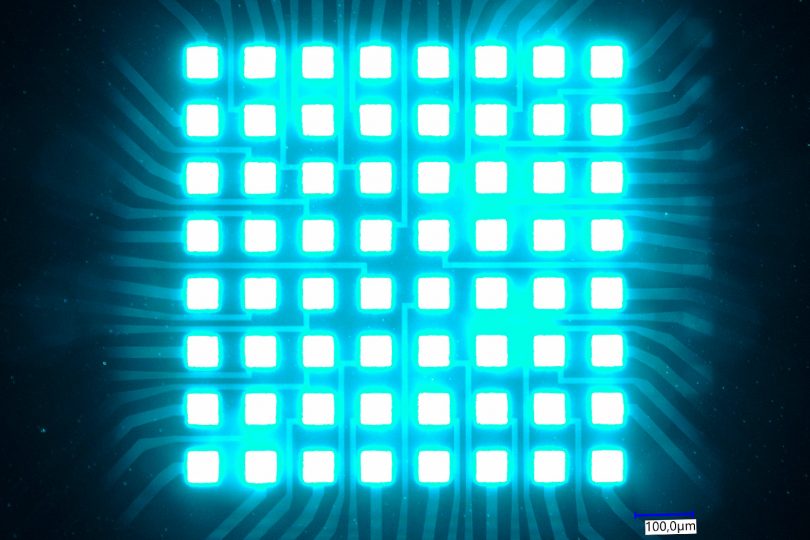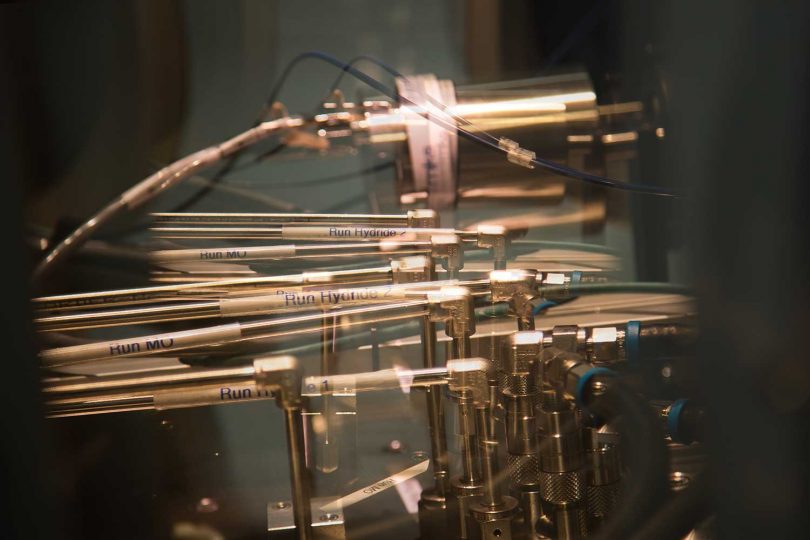Free the cat with quantum gates Playful entry into the quantum world with virtual reality
Quantum algorithms, gates, and states: Anyone who does not fall into a state of shock at the vocabulary of quantum computing deserves a certain amount of respect. In view of the speed with which alliances such as Quantum Valley Lower Saxony are currently developing quantum computers, however, the need for quantum experts is increasing rapidly. It is therefore all the more important to offer a low-threshold introduction to the world of quantum. In the QuantumVR project, researchers of TU Braunschweig have developed an escape game in which quantum gates can literally be touched thanks to virtual reality.
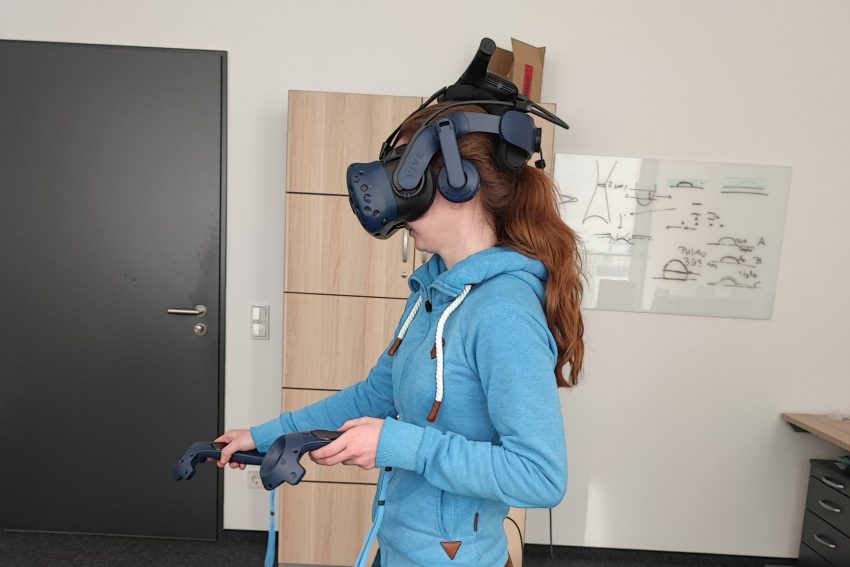
With goggles, headphones and controllers, QuantumVR creates a seamless VR experience. Picture credits: Laurenz Kötter/TU Braunschweig
In a sterile laboratory, the cat “Mr. X” is mewing under a glass dome. To free him, one has to bring a so-called “Q-Sphere” into the correct state. This graphical approximation of qubits, the computing unit of quantum computers, comes from IBM’s Quantum Composer. To set the three-qubit state in the Q-Sphere correctly, you assemble a quantum algorithm piece by piece in the game from small cubes, the quantum gates. What looks like the assembly of three shish kebabs is in fact the actual quantum programming. Quantum gates are the elementary units with which a quantum computer can carry out its operations.
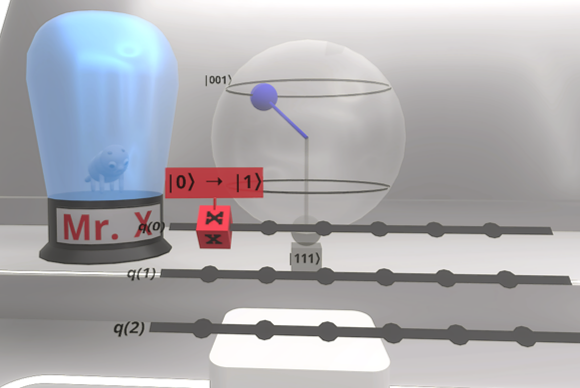
The cat “Mr. X” is waiting for his release. In order for the glass dome to open, in the glass sphere (Q-Sphere) to the right of it must be the correct qubit state. Picture credits: QuantumVR/TU Braunschweig
Even in captivity, “Mr. X” helps with programming. The cat is known for always doing the opposite of what he is told. The cubes marked “X” have the same function: they reliably twist the variables of the Q-sphere into their opposite. Even without quantum experience, the cat is freed with a little guesswork. With other animals, such as the zebra “Miss Hadamard”, further programming options come into play until finally all tasks are solved and all animals are free.
First stage: Escape Game. Second stage: Training of Engineers
Two institutes from different faculties at the TU Braunschweig are working together on QuantumVR: The Institute for the Didactics of Natural Sciences and the Institute of Semiconductor Technology. The Federal Ministry of Education and Research funded the original project. But it is only the first component of the virtual adaptation of quantum topics. From the introductory game for pupils, used for example in the MasterClasses, the next step is towards university teaching.
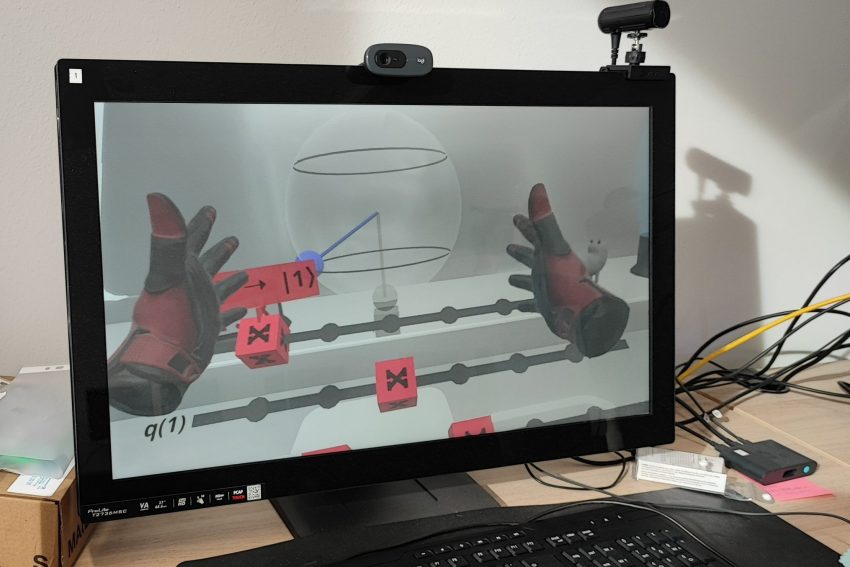
The screen shows what you perceive through the VR glasses. With your own virtual hands in front of you, you can programme the right quantum algorithms. Picture credits: Laurenz Kötter/TU Braunschweig
Until the end of 2022, the Cluster of Excellence QuantumFrontiers is adapting the game for use in degree programmes at TU Braunschweig and Leibniz Universität Hannover. The researchers are supported by the Stiftung Innovation in der Hochschullehre, which funds the project as part of ProDiGI. The new Master’s degree programmes of the Cluster of Excellence with a special focus on quantum topics have particular potential. Because with virtual reality it is already possible today to let students experiment on the quantum technologies of tomorrow. In the process, even students at different locations will work together digitally on the problems of quantum logic.

